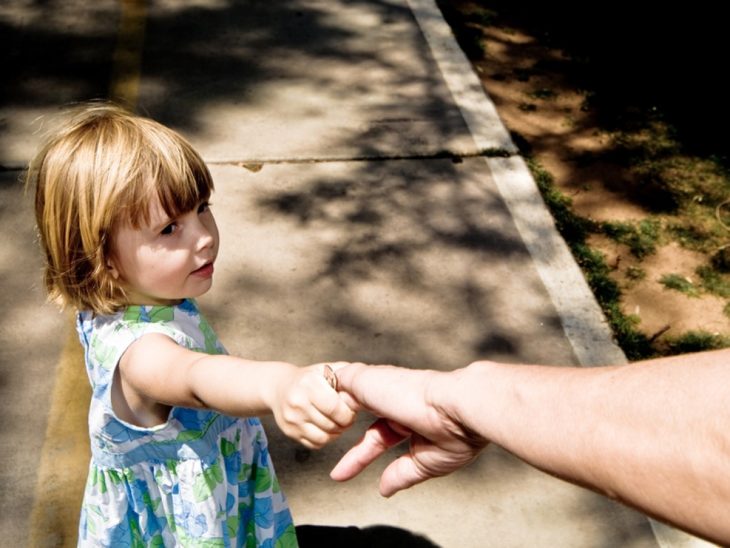Guardianship and custody are used to validate the relationship between an adult and a child legally. Custody is given to the biological parent of a child. On the other hand, guardianship can also be granted to non-biological parents. Custody is an essential part of a couple’s life if they are separated or divorced, while guardianship is a long-term solution regarding the child’s responsibility. Contact weisingerlawfirm.com to get legal assistance in your case.
Contents
Custody
It is the legal relationship between a child and their biological parents. It is a legal arrangement that allows stipulation of child maintenance and care. It is done in the case of minors. The need for custody arises in the event of divorce and separated parents.
There are two types of custody:

Source: Twitter.com
-
Physical custody
It includes custodial decisions regarding the daily schedule of the child. It also involves living arrangements, medical well-being, and other basic needs of the child.
-
Legal custody
This involves making big legal decisions on behalf of the child. In some instances, partial custody is also prevalent. In partial custody cases, the custodial parent may be allowed to live with them and spend time with them but will not be allowed to make official decisions regarding the child’s legal matters.
Guardianship
Guardianship is assigned to children younger than 18 years of age who need someone else to make decisions on their behalf. The process also helps incapacitated people. Guardianship assists those who are mentally or physically incapable of caring for themselves.

Source: Spick.com
The Requirements to Be a Guardian
You must meet the eligibility criteria if you seek to be a child’s guardian. There are specific requirements to be appointed as guardians. They are as follows:
- The person appointed to be a potential guardian must be 18 years of age or older.
- The person appointed to care for a child as a guardian must have a sound mind and sensible behavior.
- The person appointed to be a potential guardian must not be a felon.
- The person appointed for guardianship must stay within the legal territories of the United States or have proof of residence verified by the law.
Legal Guardians
The court recognizes a legal guardian for taking care of the child and taking steps for the child’s best interests. You may be appointed as a legal guardian and participate in the child’s life.
Types of Guardians
The authorities and responsibilities held by a guardian vary by their type.

Source: roulasuterlaw.com
-
Guardianship of a person
A person’s guardian holds the responsibility for the child’s well-being and makes crucial decisions on behalf of the child. The guardian must adequately care for the child’s everyday needs, like food, housing, education, and health care.
-
Guardianship of the estate
A guardian of the estate is responsible for overseeing the financial matters of a child. Generally, the same person is granted the guardianship of the estate as well as the guardianship of the person.
-
Interim guardian
An interim guardian is allowed temporarily. They are similar to foster parents. Their powers are limited in comparison to the guardians of the person and guardians of the estate. The interim guardians require the court’s approval before making certain decisions on behalf of the child or for their well-being.

Source: patriciawhenk.com
Key differences -guardian ship vs custody
Guardianship is different from custody as the guardians can make decisions regarding physical and legal matters of the child. Legal guardianship is similar to adoption, but guardianship involves biological parents being considered legal parents.
Under certain circumstances, legal guardians are required to protect the child’s interests when the actual parents cannot do so. The circumstances can be death, incapacitation, incarceration, etc. Relatives like aunts, uncles, or grandparents can be allowed to be legal guardians as well.
Appointing Custodians vs. Guardians
In terms of custody, only the court can legally give custody of a child. If court action is required, a parent can make necessary recommendations, but the judge makes the final choice in deciding on the custodial parents and the terms of the arrangement.
In guardianship, the court also gives the final decision, but parents are permitted to assist in appointing the guardian and making recommendations.
Paperwork
Both guardianship and custodianship involve essential paperwork that should be filled in to decide the child’s best interests. After filing the paperwork, the meetings occur between the child and everyone involved in the process.

Source: rightlaw.pk
Duration of Custodianship vs. Guardianship
The procedure of custody determination has flexibility and can be modified based on any substantial changes in the situation if it is deemed that the alteration is suitable for serving the best interest of the child.
On the contrary, guardianships are granted for a longer duration of time. Even longer than the life of the guardian or till the minor child is no longer under 18, even though guardianships are provided based on fulfilling temporary or emergency needs.
The court will prioritize the child’s interests for deciding if someone is suitable for supporting the child, whether through the procedure of custodianship or guardianship.
Similarities between guardianship and custody
There are certain similarities between the roles of guardians and custodians. Both of them are legally related to the child. The court appoints both custodians as well as guardians after proper assessment.
Their duties have significant similarities, too, as they both are required to provide food, clothing, housing, education, and medical care to the child in question. They are both expected by the law to protect and preserve the child from any harmful circumstances.

Source: vonderhaarlaw.com
Choosing between guardianship and custody
Custodianship, as well as guardianship, are both efficient approaches that are used for dealing with family-related issues, especially those that include minor children. The terms may consist of living arrangements, time spent by parents with their child, availability of parents, and the capacity to deal with personal and financial issues.
In order to choose which option is better for suiting the interests of your family and child, it is essential to understand the working of both procedures, their duration, and basic knowledge.
